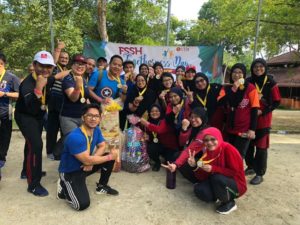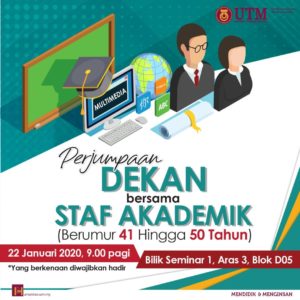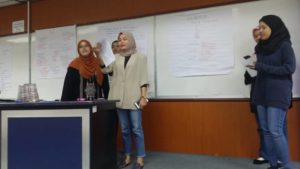Faculty of Social Sciences and Humanities (FSSH) conducted a one-day teambuilding event at Hutan Rekreasi, UTM on 15 January 2020. We had to park our car at Padang Kawad and there were buses to bring us to Hutan Rekreasi UTM (I only know its existence during this teambuilding. I have worked at UTM since 2005. It does show that I am not that athletic type).
We were suggested to bring our own stuff like extra pair of change and whatsnot. I don’t have sport shoes and a red t shirt. So, I borrowed them from my sister. With borrowed shoes and shirt, off I went to this teambuilding without having too much expectation.
Of course, the teambuilding is meant to enhance bonding and whatsnot among us yada yada yada but being someone in her 40s, clearly the activities in this teambuilding were not meant for some of us. I bear the consequences for the next few days of having my body aching all over. I used analgesic cream to sooth the throbbing that I felt on my legs. I clearly feel that I am old. I am not in my twenties. I have to admit that.
The camaraderie is clearly something that have to be started somewhere. Teambuilding event like this clearly a good start to develop that for a long term run. Kudos to everyone who put the event together. It was not easy to organise this and for each staff to sacrifice whatever they were doing at that time worth to be noticed. This event was conducted on 15 January. Some of us had our last papers on 12 January. So, it was “the marking season”. With a short duration to mark (we have to present the marks on 19 January), majority of us made a point to allocate this one whole day for this event. Some of us did not participate in this event due to medical reasons and others. One of them said to me that she had slipped disk. So, climbing uneven routes is not good for her spine. She said that she wished such event was conducted when she first started working at UTM.
What do I learn from this event?
- Trust and respect are two different things that need to be developed and improved over times. Teambuilding like this allows others to know each other better but it does not affect much other things.
- Each of us needs to make sacrifice now and then but it will always come back to our choice. We choose to make certain sacrifices and have to be accountable for not making any.
- No matter what we do, we need to give our best shots to the best of our ability. I know that age is catching up so rigorous physical activities are something that I should not overdo. But I will not give up of not trying at all.






